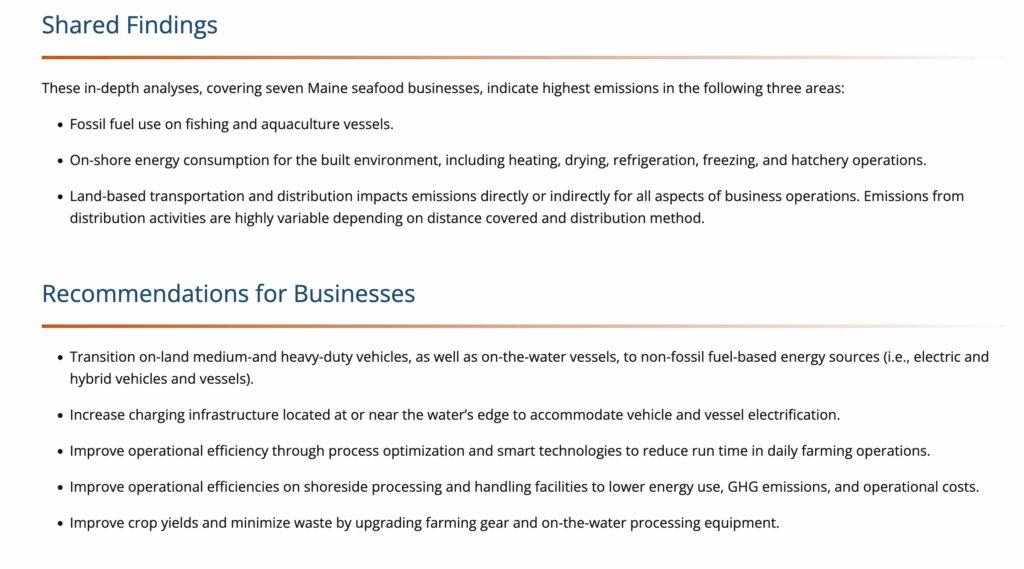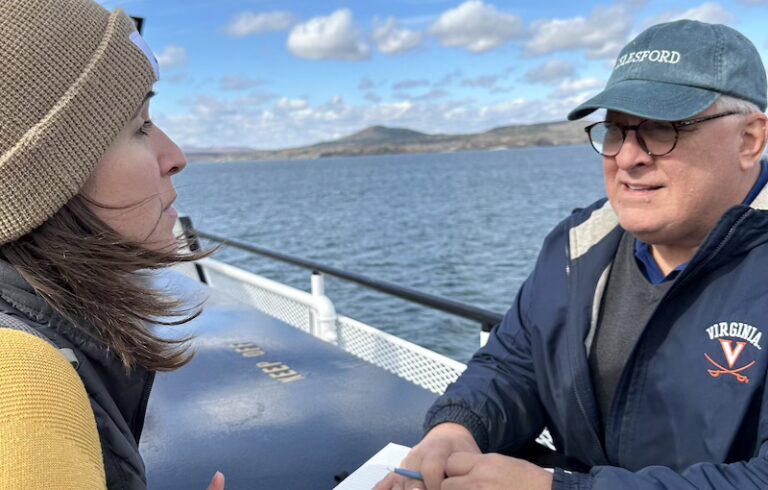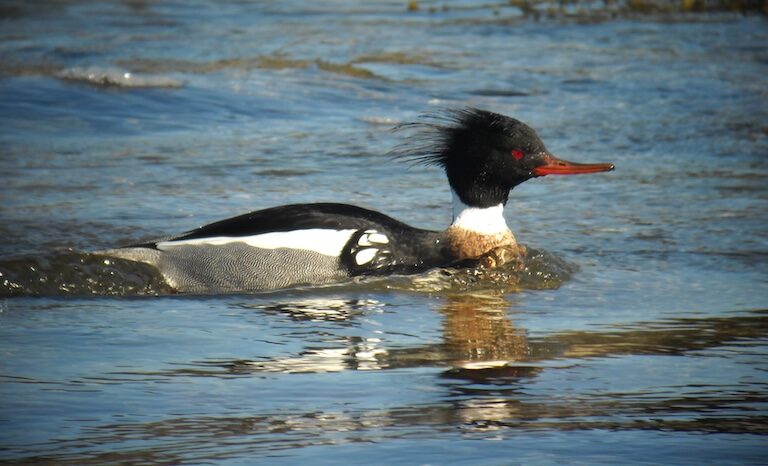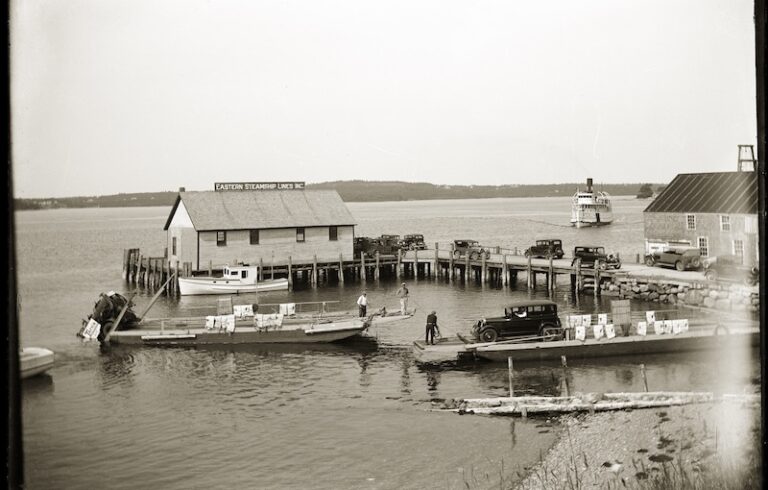Your favorite seafood dinner may be better for the planet than you think. Sitting down to a bowl of Maine-farmed mussels likely means consuming only one-fourth of the carbon footprint you’d get from the same amount of protein in tofu.
We know this from a suite of greenhouse gas (GHG) assessments that Island Institute commissioned between 2022 and 2024, which focused on seafood businesses that produce lobster, kelp, mussels, and oysters. This is a first for seafood in Maine.
By looking at multiple businesses across Maine’s seafood sector, we can compare learning from business to business, highlighting opportunities for improvement at both the business and systems scale.
These innovations are proof that Maine’s seafood industry can lead the nation in sustainable marine business practices.
For example, vessel fuel use dominates emissions across many seafood operations, accounting for a staggering 60 percent of emissions in Luke’s Lobster’s supply chain. The pattern holds across shellfish aquaculture, ranging from 19% to 59% across the four oyster farms that were assessed and representing 27% of total emissions at Bangs Island Mussels.
These opportunities for improvement come at a time when Maine’s seafood sector has been beset by climate change impacts, ranging from rises in ocean temperature and acidification, which kills off oyster spat, to increased storm surges washing critical infrastructure into the sea.
Make no mistake—our access to healthy seafood from fishermen and aquaculturists is under threat, along with the thousands of jobs and iconic heritage that bring it to your table. But there are available solutions that can both reduce the seafood sector’s GHG emissions and assist businesses on the financial side.
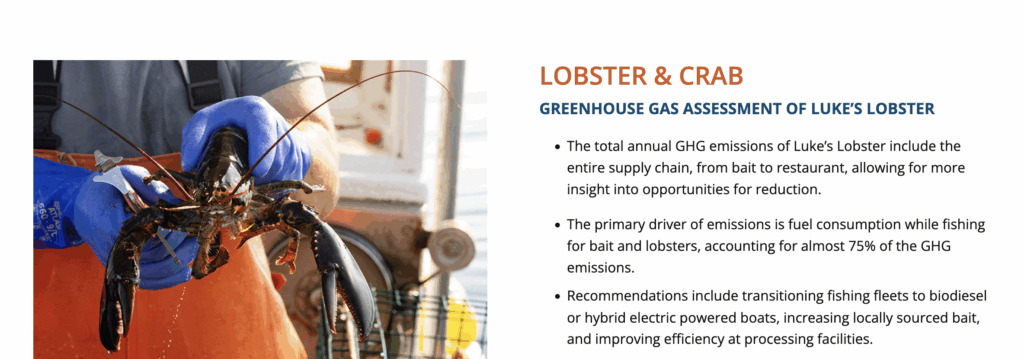
One elegant solution has already been piloted by Luke’s Lobster. After receiving the results of their GHG assessment, Luke’s installed gel packs in its industrial freezer; they function like the cooler ice packs you bring with you on your trip to the beach.
Using them allows Luke’s to avoid using electricity during peak hours, which reduces its electricity bill, leads to fewer GHG emissions, and lowers the overall strain on the electrical grid. Innovations like these utilize technologies that have been commonplace in other industries for some time. More direct innovation has often been considered something that will come in the future.
Maine’s marine businesses aren’t waiting for the future; they’re building it now. Hylan and Brown Boatbuilders in Brooklin recently swapped its gas-powered engine for an electric outboard, using Island Institute grant funds to also install an off-grid solar array. As a result, its work skiff charges directly at the dock, using nothing by solar power.
On the New Meadows River, Bombazine Oyster Company has also leveraged Island Institute’s financial support to upgrade its floating solar array on the farm. With increased solar capacity and energy storage, the business now powers all its on-the-water processing equipment with solar energy and has enough left over to help charge the electric outboard its planning to add. These innovations build on earlier pioneers like Mere Point Oyster Copany, which has been running a solar powered oyster tumbler on it’s farm for years.
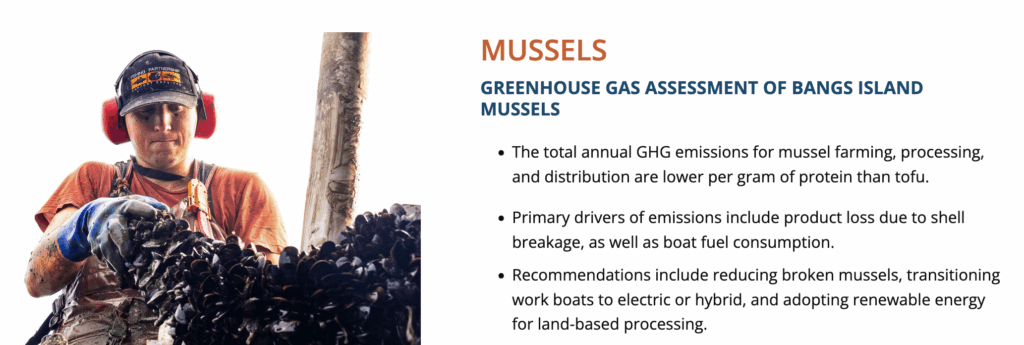
These innovations represent more than isolated success stories—they’re proof that Maine’s seafood industry can lead the nation in sustainable marine business practices. From Brooklin to the New Meadows River and beyond, these forward-thinking companies are showing us how marine businesses can thrive while protecting the environment they depend on. Their pioneering efforts demonstrate that the transition to clean energy isn’t just possible for marine businesses; it’s practical and already happening.
To bring stories like these to Maine’s coast, Island Institute will host public screenings of our new film, Climate of Change 7: Aquaculture for People and Planet, with panel discussions featuring our staff and Maine seafood industry members. These events showcase both the sustainability of Maine’s farmed seafood and our ongoing work to catalog emissions and drive innovative decarbonization efforts across the state’s seafood sector.
Sam Feldman is a community development officer with Island Institute, publisher of The Working Waterfront, focusing on helping sea farms transition away from fossil fuels. He may be contacted at sfeldman@islandinstitute.org.
